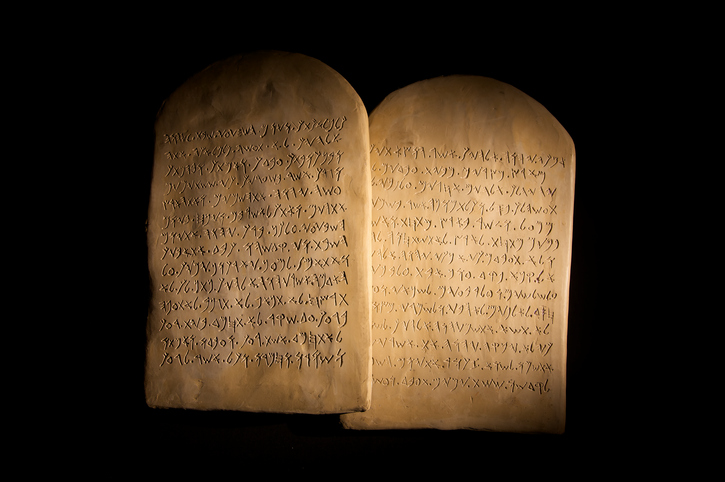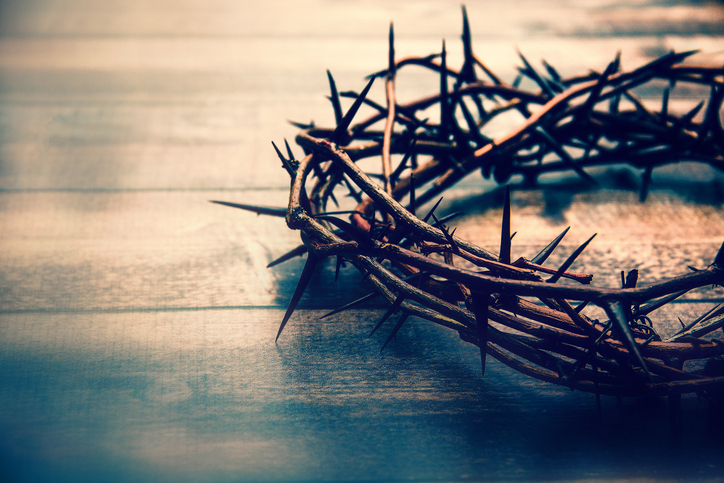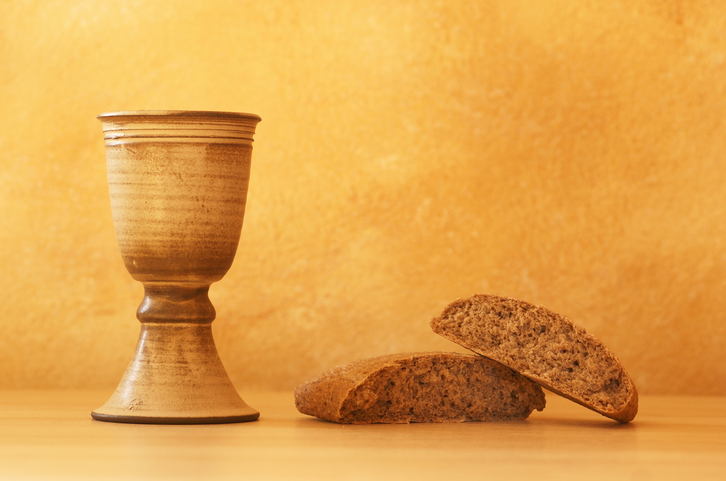Es el primer viernes de la Cuaresma. De inmediato pienso en el ayuno y me acuerdo de las innumerables cacerolas de atún, los palitos de pescado empanados, y chícharos cremados sobre pan tostado que me sirvieron para las cenas los viernes de mi juventud. Realmente no me gusta el atún enlatado ni los chicharos de lata. Aunque parecía que el resto de la familia lo disfrutaba, secretamente esperaba que mi mama mandara la comida a los niños que no tenían que comer, aunque sabía que se iba a echar a perder antes de que les llegara y yo iba a tener que ir a la cama con hambre. Mi cabeza de niño de primaria no llegaba a entender el concepto de por qué ayunamos, y que tenía que ver el ayuno con la Iglesia. Pues la Iglesia era para los domingos. Aaa, como es el enfoque y los ideales de los jóvenes…
Las dos lecturas de hoy hablan del ayuno. ¿Mi ayuno termina en discusiones y peleas? ¿Hablo cortante a los demás porque he faltado una comida como parte del ayuno y se me ha bajado el azúcar? No creo que este tipo de ayuno físico es el sacrificio que Dios me pide. Entonces ¿qué tipo de ayuno Dios me pide hacer esta Cuaresma?
Quiero que mi ayuno sea agradable al Señor. El Papa Francisco ha escrito unas palabras muy profundas en su mensaje anual de la Cuaresma 2018 sobre cómo no dejar que se enfríen nuestros corazones. Utilizó la descripción del infierno de Dante para comparar nuestro corazón frío al, “diablo sentado en un trono de hielo; su morada es el hielo del amor extinguido.” ¡Aycaray! ¡Yo definitivamente no quiero llegar a eso! También hay unas cosas de las palabras del Santo Padre que me tienen pensando cómo puedo ayunar a un nivel más profundo.
- Ayunar de palabras dañinas y hablar palabras bondadosas.
- Ayunar de la tristeza y llenarme de gratitud.
- Ayunar del enojo y llenarme de paciencia.
- Ayunar del pesimismo y llenarme de esperanza.
- Ayunar de las preocupaciones y confiar en Dios.
- Ayunar de las quejas y contemplar la sencillez.
- Ayunar de los agobios y ser una persona de oración.
- Ayunar de la amargura y llenar sus corazones de alegría.
- Ayunar del egoísmo y ser compasivos con los demás.
- Ayunar de los rencores y reconciliarse.
- Ayunar de las palabras y mantener silencio para escuchar.
Para mí, estas son maneras muy realistas de ayunar, aunque parezcan más y más difíciles la segunda y tercera leída. La Cuaresma, durante el proceso de dos años de separarme y divorciarme de mi ex-esposo, era demasiado doloroso. Hice el esfuerzo de ayunar de los comentarios negativos sobre nuestra situación. Intenté ayunar de las palabras dañinas y de la amargura. Era una batalla. Me hice miembro del coro en mi parroquia para elevar a Dios lo quebrado en mí con el canto durante la Cuaresma. Guío el canto para asegurar que vaya a Misa los domingos para nutrirme con el Cuerpo y Sangre de Nuestro Señor Jesucristo. Hago estas cosas porque no puedo sobrevivir a solas. Necesito el amor derramado en el sacrificio Eucarístico. Jesús me amó tanto, una pecadora, que dio su vida para redimirme, para redimirte a ti.
El P. Thaddaeus Lancton escribió una reflexión hermosa sobre “El Secreto de la Cuaresma” (“The Secret of Lent”). Habla de ver la Cuaresma a través del ejemplo de Sta. Faustina; cómo podemos agradar al Señor con la obediencia.
Dice:
“Cuando Faustina le pidió a su superiora…. permiso de ayunar, se la negó porque sufría de mala salud. La dijeron que en lugar de ayunar, debe meditar en la Pasión – en particular como Jesús aceptó el vinagre y hiel — mientras comía. Como escribió Sta. Faustina: ‘El beneficio es que mientras estoy meditando constantemente en su triste Pasión mientras estoy comiendo, no estoy preocupada de lo que coma, sino estoy reflexionando en la muerte de mi Señor’ (Diario, 618).
La meta de esta Cuaresma no es simplemente mejorar a nosotros mismos o agregar propósitos, sino como aprendió Sta. Faustina, es una temporada para conformarnos a Cristo en su Pasión, para que podamos compartir también en su Gloria (vea el Diario, 446). Deseamos nosotros también entonces, ser obedientes a Jesús, porque hizo posible nuestra salvación a través de su obediencia, y recibimos la gracia de nuestra salvación a través de nuestra obediencia a Él.”
El Obispo David L. Ricken ofreció otra reflexión en “10 Cosas por Recordar para la Cuaresma” (10 Things to Remember for Lent). Parte de mi ofrecimiento cuaresmal será rezar para por lo menos una persona por día que no conozca. Intentaré ayunar de las palabras para que pueda ser silenciosa y escuchar al Señor en aquellos a mi alrededor y a través de las situaciones mundanas y las rutinas que forman mi vida. Haré el esfuerzo de asistir a Misa diaria 3 veces por semana. ¿Qué es lo que Dios te pide a ti?

 CatholicMom.com was started by Lisa Hendey in 2000 to create a community for Catholic parents to share insights on living their faith with their family. The website has grown substantially over the years to become a rich resource for all Catholics seeking spiritual enrichment for their families. It continues to provide fresh perspectives from the enriching columnists and contributors with daily articles and reflections as well as book and tech recommendations.
CatholicMom.com was started by Lisa Hendey in 2000 to create a community for Catholic parents to share insights on living their faith with their family. The website has grown substantially over the years to become a rich resource for all Catholics seeking spiritual enrichment for their families. It continues to provide fresh perspectives from the enriching columnists and contributors with daily articles and reflections as well as book and tech recommendations.
 As a Solutions Evangelist for Diocesan, Tommy is committed to showing parish and diocesan staffs how to use our communication tools to their best advantage. He has worked for years in various, youth ministry, adult ministry, and diocesan roles. As an expert on Catholic communication, Tommy uses his parish and diocesan experiences to help you make your ministry effective. To bring Tommy to your parish or for general inquiry, contact him at
As a Solutions Evangelist for Diocesan, Tommy is committed to showing parish and diocesan staffs how to use our communication tools to their best advantage. He has worked for years in various, youth ministry, adult ministry, and diocesan roles. As an expert on Catholic communication, Tommy uses his parish and diocesan experiences to help you make your ministry effective. To bring Tommy to your parish or for general inquiry, contact him at 
 Veronica Alvarado is a born and bred Texan currently living in Michigan. Since graduating from Texas A&M University, Veronica has been published in the Catholic Diocese of Austin’s official newspaper, Catholic Spirit, as well as other local publications. She now works as the Content Specialist in Diocesan’s Web Department.
Veronica Alvarado is a born and bred Texan currently living in Michigan. Since graduating from Texas A&M University, Veronica has been published in the Catholic Diocese of Austin’s official newspaper, Catholic Spirit, as well as other local publications. She now works as the Content Specialist in Diocesan’s Web Department.
 During the week, Matt is a mentor for individuals who have developmental and intellectual disabilities. On the weekends, he is a drummer for Full Armor Band.
During the week, Matt is a mentor for individuals who have developmental and intellectual disabilities. On the weekends, he is a drummer for Full Armor Band.

 Beth Price is a Secular Franciscan (OFS) and spiritual director who has worked in several parish ministry roles during the last 20 years. She is a proud mother of 3 adult children. Beth currently works at Diocesan.
Beth Price is a Secular Franciscan (OFS) and spiritual director who has worked in several parish ministry roles during the last 20 years. She is a proud mother of 3 adult children. Beth currently works at Diocesan.